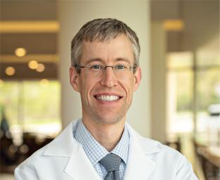 Adam Helms, MD Adam Helms, MD
Dr. Helms is a cardiologist and Assistant Professor at the Cardiovascular Center. While interested in all aspects of cardiology, he has a primary interest in inherited cardiomyopathy and inherited arrhythmia disorders. Helping patients work through their experience with a heart condition and return to their quality of life inspires Dr. Helms. Having a heart condition can be frightening, and Dr. Helms enjoys working closely with patients to help them understand their medical problems and feel empowered about their medical care. Though he truly enjoys the science of medicine, he finds working with patients from all walks of life to understand their health conditions to be the most rewarding part of his job. Before coming to UMHS for his fellowship in cardiology, Dr. Helms studied at the University of Virginia School of Medicine and the University of Virginia Hospitals. In addition to his cardiology training, Dr. Helms also completed a Masters in Human Genetics at the University of Michigan.
Sessions: Gene therapies; Overview (101) and HCM specific challenges. Who is the first patient?
 Ahmad Masri, MD Ahmad Masri, MD
Dr. Masri's specializes in caring for patients with conditions that result in abnormally thickened hearts, such as hypertrophic cardiomyopathy, amyloidosis and Fabry’s disease. Dr. Masri trained in Internal Medicine at the Cleveland Clinic, where he developed his passion for improving the lives of patients with heart disease. Subsequently, he moved to the University of Pittsburgh, where he completed training in cardiovascular diseases. Dr. Masri is also an expert in cardiac imaging. He spent two years at the University of Pittsburgh supported by a grant from the National Institute of Health, focusing on cardiac magnetic resonance imaging, nuclear cardiology, and echocardiography. These modalities constitute the cornerstone of diagnosing and following up patients with thickened hearts. From diagnostic approaches to therapeutics, Dr. Masri led numerous research projects that resulted in publications in leading academic journals.
Sessions: Panel discussion on practical implementation of CMI

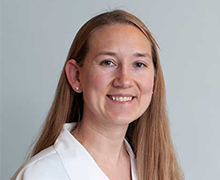 Albree Tower-Rader, MD Albree Tower-Rader, MD
Dr. Albree Tower-Rader is a noninvasive cardiologist with an interest in cardiac imaging and hypertrophic cardiomyopathy. Dr. Tower-Rader completed her medical degree at the University of Miami Miller School of Medicine, followed by her Internal Medicine residency at McGaw Medical Center of Northwestern University. She subsequently completed her Cardiovascular Medicine fellowship and Advanced Cardiovascular Imaging fellowships at the Cleveland Clinic, with extensive training in advanced echocardiography, cardiac CT and cardiac MRI. Dr. Tower-Rader then joined the faculty of Harvard Medical School and Massachusetts General Hospital where she is a clinical cardiologist involved in the hypertrophic cardiomyopathy program, echocardiography lab and cardiovascular imaging division. Sessions: Defining quality HCM care in 2023; SRT and more 
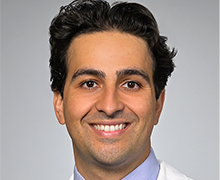
Alex De Feria, MD
Alejandro de Feria, MD, is a cardiologist at the Penn Heart and Vascular Center. His clinical area of focus is inherited and genetic forms of cardiovascular disease. He specializes in hypertrophic (HCM) and dilated (DCM) cardiomyopathy, along with arrhythmogenic right ventricular cardiomyopathy (ARVC), left ventricular noncompaction (LVNC), and other forms of nonischemic cardiomyopathy.
Sessions: HCM in under-represented populations; Women and Diverse Ancestral Populations

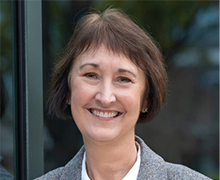 Amy Sehnert, MD Amy Sehnert, MD
Amy Sehnert, MD, is vice president and head of Cardiomyopathy and Heart Failure Clinical Development in Global Drug Development (GDD) at Bristol Myers Squibb’s Brisbane, California site, working to develop precision therapeutics for serious cardiovascular disorders, with a specific focus on diseases of heart muscle (cardiomyopathies) and heart failure.
Through a precision approach assessing well-characterized patient groups and targeting molecular-genetic underpinnings of disease, Amy and her team diligently work to identify, optimize and develop therapies that may have the most profound impact. Amy and her team use data science, advanced clinical trial solutions and digital innovation to drive Bristol Myers Squibb’s pipeline into action. Amy has led her team through global regulatory filings and the FDA approval of CamzyosTM.
Amy joined Bristol Myers Squibb in 2020 by way of MyoKardia, where she built and led the clinical team studying the company’s pipeline of therapies for patients with hypertrophic cardiomyopathy, including in Phase 2 and 3 clinical trials. Amy possesses unique expertise in study concept design, protocol development, study implementation, interpretation and presentation of the results. She enjoys the collaborative nature of the work from bench-to-bedside. She is a member of the Brisbane Site Executive Leadership Team.
Sessions: Panel Discussion: Emerging pharmacologic therapies for HCM 
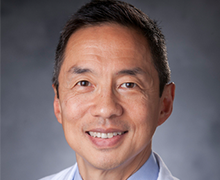 Andrew Wang, MD Andrew Wang, MD
Andrew Wang, MD is a Professor of Medicine at Duke University Health System in Durham, NC and serves as the Vice Chief for Cardiology. He received his medical degree at Duke, internal medical residency training at the Johns Hopkins Hospital, and cardiology fellowship training at Duke. His clinical and research interests are focused on hypertrophic cardiomyopathy (HCM) and structural heart diseases. Since 2003, he has directed the Duke HCM clinic, part of the Adult Cardiovascular Genetics Clinic and an HCMA Center of Excellence. He has been actively involved in clinical trials and registries in HCM, including serving on steering committees for recent and ongoing trials.
Sessions: After the Lede - Ancillary findings from CMI trials. 
 Anjali Owens, MD Anjali Owens, MD
Anjali Tiku Owens, MD, is an Associate Professor of Medicine in the Division of Cardiology at the Perelman School of Medicine of the University of Pennsylvania. She is the founding Director of the Penn Familial Cardiomyopathy Program, Director of the Hypertrophic Cardiomyopathy clinic and was appointed the Medical Director of the Penn Center for Inherited Cardiovascular Disease in 2015.
Dr. Owens completed her medical degree and undergraduate degree at Duke University. She completed internship, residency, chief medical residency, and fellowships in Heart Failure and Transplantation and in Cardiovascular Medicine at the Hospital of the University of Pennsylvania. She also completed the Clinical Research Certificate Program at the Center for Clinical Epidemiology and Biostatistics at the University of Pennsylvania. Dr. Owens joined the faculty of the Heart Failure and Transplantation Program at Penn in 2011.
Sessions: After the Lede - Ancillary findings from CMI trials. 
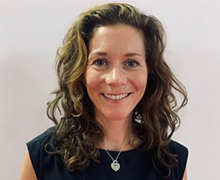 Anna Axelsson Anna Axelsson
Anna Axelsson Raja received her medical degree from University of Copenhagen in 2008 and Ph.D degree in 2015. She worked as a postdoctoral research fellow at the Cardiovascular Genetics Center at Brigham and Women’s Hospital and Harvard Medical School Boston in 2014-2015 and is presently working as a specialist registrar at Department of Cardiology, Rigshospitalet, Copenhagen. Dr Axelsson Raja’s interests include clinical and translational research in cardiology, with focus on cardiomyopathies, genetics, and cardiovascular imaging and she has served as an investigator on several clinical trials within the fields of inherited cardiomyopathies and heart failure. Dr Axelsson Raja is a member of the Steering committee of The Copenhagen Baby Heart Study and serves as academic supervisor of six past and present Ph.D students, as well as several graduate students, within the CBHS. Dr. Axelsson Raja’s ambitions are to continue working with inherited cardiomyopathies using a bench-to-bedside approach integrating advances in basic research with clinical
Sessions: Panel Discussion: Emerging pharmacologic therapies for HCM

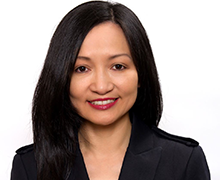 Anna Woo, MD Anna Woo, MD
Sessions: Panel discussion on practical implementation of CMI

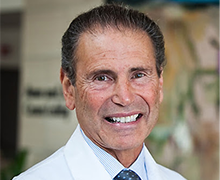
Barry Greenberg, MD
Barry H. Greenberg, MD, is a board-certified cardiologist and internationally recognized pioneer in the field of heart failure. He directs the Advanced Heart Failure Treatment Program at UC San Diego Health. He has been working in cardiology since 1971, including positions at the National Heart, Lung and Blood Institute (NHLBI), Oregon Health Sciences University, Royal Postgraduate Medical College, Hammersmith Hospital in London, and College de France in Paris. He has been at UC San Diego since 1995, and is a professor in the Department of Medicine at UC San Diego School of Medicine, where he instructs medical students, residents and fellows.
In addition to his clinical activities, Dr. Greenberg leads an active research program investigating basic mechanisms involved in heart failure and the development of new drugs and strategies to treat patients with this condition. He serves on the editorial boards of numerous cardiology journals and is an associate editor of the Journal of the American College of Cardiology. He completed a fellowship at UC San Francisco School of Medicine and a residency at Yale School of Medicine. Dr. Greenberg earned his medical degree from SUNY Upstate Medical University. Dr. Greenberg is a fellow, founding member and past president of the Heart Failure Society of America (HFSA). He has been consistently selected as one of the "Best Doctors in America" since 1995. In 2017, he received the Heart Failure Society of America Lifetime Achievement Award for his exemplary career in scholarship, investigation, teaching, and leadership.
Sessions: Gene therapies; Overview (101) and HCM specific challenges. Who is the first patient?

 Carolyn Ho, MD Carolyn Ho, MD
Dr. Carolyn Yung Ho is the medical director of the Cardiovascular Genetics Center at Brigham and Women’s Hospital (BWH). A cardiovascular medicine specialist, she is also an associate professor of medicine at Harvard Medical School (HMS). She received her medical degree from HMS. She then completed an internal medicine residency and a cardiology fellowship at BWH. Dr. Ho is board certified in internal medicine and cardiovascular disease.
Dr. Ho’s clinical interests include cardiomyopathy, echocardiography, and cardiovascular genetics. The author of over 30 peer-reviewed publications, her research focuses on characterizing early phenotypes of sarcomere mutations in inherited cardiomyopathies and developing clinical trials to diminish the progression of hypertrophic cardiomyopathy. Her research has received support from the American College of Cardiology and National Institutes of Health.
Sessions: Panel Discussions: I've found the intermediate biomarker of HCM disease progression!

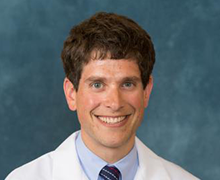 Craig Alpert, MD Craig Alpert, MD
Certified by the American Board of Internal Medicine in Cardiovascular Disease and Advanced Heart Failure, Dr. Alpert provides care and treatment to people with pulmonary hypertension and heart failure, including cardiac transplantation and mechanical support, such as left ventricular assist devices (LVADs). He completed additional training in advanced heart failure and cardiac transplantation as well as in adult echocardiography.
A Pittsburgh native, Dr. Alpert earned his medical degree at the University of Pennsylvania School of Medicine in Philadelphia, and completed his internal medicine residency at the Hospital of the University of Pennsylvania. He completed both his general cardiology fellowship and subspecialty training in advanced heart failure and cardiac transplantation at the University of Michigan Health System in Ann Arbor, where he also served as chief fellow. During his training, Dr. Alpert authored more than 20 abstracts and publications with a particular focus on symptom burden in heart failure. He organized two education-themed national meetings for the American College of Cardiology (ACC), was the principal investigator for a grant from the University of Michigan’s Department of Graduate Medical Education, and served as a consultant for the ACC’s Advance Care Planning smartphone app.
Dr. Alpert is a Fellow of the American College of Cardiology. He is also a member of the Heart Failure Society of America and the International Society for Heart and Lung Transplantation. Dr. Alpert has medical privileges at Allegheny General, Forbes, and West Penn hospitals.
Sessions: Panel discussion on practical implementation of CMI

 Daniel Swinstel, MD Daniel Swinstel, MD
Dr. Swistel is a Professor of Cardiothoracic Surgery at the Grossman School of Medicine at New York University and Surgical Director of the Hypertrophic Cardiomyopathy Program at NYU/Langone Health.
He is a graduate of Harvard College and Rutgers Medical School and completed his residency training at St. Lukes/Roosevelt Hospital and Montefiore/Albert Einstein Medical Center.
Before moving to NYU, Dr. Swistel was an Associate Professor at Columbia University and an attending at St. Lukes/Roosevelt, where he and Dr. Mark Sherrid started the Hypertrophic Cardiomyopathy Program in the 1990’s.
He has authored well over a hundred abstracts, papers and book chapters, and lectured internationally. His work In Obstructive Hypertrophic Cardiomyopathy has centered on preservation of the mitral valve in patients with minimal septal hypertrophy and has performed over a thousand myectomy procedures. Notably, while in college, he was the first to prove the existence of an important component of cellular metabolism - RNA polymerase. One can argue, it has been all downhill from there.
Sessions: Defining quality HCM care in 2023; SRT and more

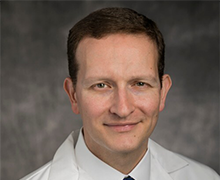 Eiran Gorodeski, MD Eiran Gorodeski, MD
Eiran Z. Gorodeski, MD, MPH, FACC, FHFSA, is Director of the Advanced Heart Failure & Transplant Center, Harrington Heart & Vascular Institute, University Hospitals Health System. He also serves as Section Head of advanced heart failure in the Division of Cardiovascular Medicine and Professor of Medicine at Case Western Reserve University.
Dr. Gorodeski earned his Bachelor of Arts degree at Brandeis University in Waltham, Massachusetts, graduating magna cum laude. He received his medical doctorate from Case Western Reserve University School of Medicine, where he was inducted into the Alpha Omega Alpha Honor Medical Society. He completed a Master of Public Health degree with a concentration in quantitative methods at Harvard University. He completed his internship and residency in internal medicine at Massachusetts General Hospital, Boston, Massachusetts and his cardiovascular disease and advanced heart failure and cardiac transplantation training at Cleveland Clinic, Cleveland, Ohio. He was a staff cardiologist at Cleveland Clinic from 2010 to 2019.
Dr. Gorodeski has an interest in the medical management of patients with advanced heart failure, including outpatient, inpatient and critical care. He is a clinical expert in cardiac transplantation and left ventricular assist device (LVAD) management. Dr. Gorodeski has published extensively in areas related to heart failure care transitions and the care of older adults with heart failure. In addition to his clinical and research work, Dr. Gorodeski has significant experience in leadership, management and program building in health care settings.
Sessions: Translating Advances In HFrEF To Non-obstructive HCM-rEF

 Heidi Salisbury, RN, MSN, CNS-BC, ACGN Heidi Salisbury, RN, MSN, CNS-BC, ACGN
Heidi Salisbury joined Stanford Health Care as a bedside nurse in the coronary care unit in 2001. In 2006, she co-founded the Stanford Center for Inherited Cardiovascular Disease (SCICD) and is the Program Operations Coordinator. As a Clinical Nurse Specialist, board-certified in genetics, Heidi is dedicated to mentoring nurses, genetic counselors, and physician fellows to develop the clinical skills and gain the knowledge base necessary to expertly manage patients with inherited heart disease. Heidi is passionate about training the next generation of providers to think genetically when approaching the care of this population. Heidi advocates for building programmatic infrastructure that supports a continuum of expert-level nursing care through the individual lifespan and across the generations of a family. Heidi has a background in exercise physiology and cardiac rehabilitation from Cal Poly, San Luis Obispo. She completed graduate and post-graduate work in cardiovascular nursing science at San Francisco State/UCSF. Heidi is active in leadership roles with the American Heart Association, the International Society of Nursing and Genomics, the Preventative Care Nursing Association and Stanford Health Care’s APP Institute.
Sessions: Progressive thoughts on exercise in HCM; Practical implementation of CMI

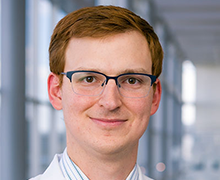 James MacNamara, MD James MacNamara, MD
James MacNamara, M.D., is an Assistant Professor in the Department of Internal Medicine at UT Southwestern Medical Center and a member of the Division of Cardiology. He specializes in advanced cardiac imaging, clinical echocardiography, and heart failure with preserved ejection fraction. Originally from Atlanta, Dr. MacNamara holds bachelor's degrees in chemistry and history from the University of Georgia in Athens. He earned his medical degree at the University of Virginia School of Medicine in Charlottesville and completed his internal medicine residency training at the Emory School of Medicine in Atlanta. He then received advanced training in cardiology through a fellowship at UT Southwestern. Certified by the American Board of Internal Medicine, Dr. MacNamara joined the UT Southwestern faculty in 2021. Dr. MacNamara has published several academic articles in leading journals such as Circulation and Echocardiography. Among many other honors, Dr. MacNamara received the University of Virginia School of Medicine’s 2013 Medical Student Teaching Award.
Sessions: Panel Discussions: I've found the intermediate biomarker of HCM disease progression!

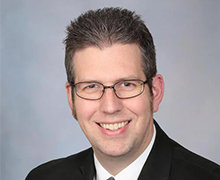 Jeffrey Geske, MD Jeffrey Geske, MD
Jeffrey B. Geske, M.D., is a consultant in the Department of Cardiovascular Medicine at Mayo Clinic. He is interested in use of multimodality imaging to assess structural heart disease, including hypertrophic cardiomyopathy and valvular heart disease. Dr. Geske's education roles include serving as the Cardiology and Vascular Medicine course director of the Mayo Clinic Alix School of Medicine and as a co-director of the Mayo Clinic Cardiovascular Board Review.
Dr. Geske's research focus is in hypertrophic cardiomyopathy. His clinical focus is on patients with structural heart disease, including hypertrophic cardiomyopathy, pericardiocentesis, and 3-D echocardiographic guidance of interventions. Dr. Geske's multimodality research provides better understanding of the complicated hemodynamic interactions found in patients with hypertrophic cardiomyopathy and valvular heart disease.
Sessions: HCM in under-represented populations; Women and Diverse Ancestral Populations

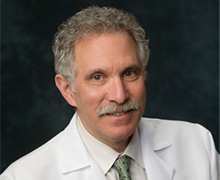 James Udelson, MD James Udelson, MD
James Udelson, M.D., is Chief of the Division of Cardiology as well as Director of Nuclear Cardiology at Tufts Medical Center. He is a Professor of Medicine and Radiology at Tufts University School of Medicine in Boston, and in 2012 received the Distinguished Faculty Award from the Medical School. Dr. Udelson was an Associate Editor for the American Heart Association’s cardiovascular journal Circulation from 2004 – 2016. In 2008, he was selected as the initial Editor-in-Chief for the AHA’s then new journal Circulation: Heart Failure. Dr. Udelson is Past-President of the American Society of Nuclear Cardiology, and has served a 5-year term on the Board of Trustees of the American College of Cardiology (ACC). He has chaired the ACC’s Cardiovascular Imaging Committee, served on the ACC Publications Committee, and completed a term as Chair of the ACC Governance Committee, and has Co-Chaired or been a member of multiple societal Guideline panels. He has recently completed a term as a member of the Executive Council of the Heart Failure Society of America. He has served as a member of the FDA Medical Imaging Drugs Advisory Panel, is an invited advisor to the FDA’s Division of Medical Imaging and Hematology Products, and has been invited as an ad hoc member of the FDA’s Cardiovascular and Renal Drugs Advisory Panel and the Peripheral and Central Nervous System Advisory Panel. He is a member of the Association of University Cardiologists and the Association of Professors of Cardiology.
Sessions: Defining quality HCM care in 2023; SRT and more


John Spertus, MD
Dr. Spertus is the Clinical Director of Outcomes Research at Saint Luke’s Mid America Heart Institute and the Lauer Missouri Endowed Chair and Professor of Medicine at the University of Missouri–Kansas City. His research focuses on personalized medicine, measuring outcomes and health care quality, and the use of information technology to guide medical decision making. Dr. Spertus received the American Heart Association’s (AHA) Quality of Care and Outcomes Research Outstanding Lifetime Achievement Award in 2015, and has been recognized by the AHA as a Distinguished Scientist in 2018 for research that has advanced the understanding of cardiovascular disease and stroke. Sessions: Panel Discussions: I've found the intermediate biomarker of HCM disease progression! 
 Lindsay Davis Lindsay Davis
Dreams of performing in the Paris Opera Ballet were quelled for Lindsay Davis, a former Miss Ohio, when she was 17 years of age. She was the epitome of health, until the night she collapsed after dance practice and she was diagnosed with hypertrophic cardiomyopathy (HCM). She wondered “if I have to give up dance, what will my life be now? When I have children, will they have it? But most importantly – what exactly is HCM.”
In the years preceding Lindsay’s diagnosis, she had searched for answers. A seemingly healthy ballerina was not thought to have an issue warranting a closer look at her heart. “I have a genetic heart condition we commonly hear about in the news when an athlete drops on the field or on the pitch. Many people are not as lucky as I have been so I want the right policies in place that will help others not have to rely on luck to get diagnosed and treated.”
In 2017, the Sudden Cardiac Arrest (SCA) Law, also known as Lindsay’s Law, came into effect in Ohio and provides key information resources. The Law also protects student athletes by educating parents, coaches, and the students themselves on the signs and symptoms of underlying heart conditions and removes children from play if they are exhibiting symptoms until they can be cleared by a doctor. It has taken four years for the law to come about, and the aim is for it to become federal law. In addition, Lindsay has worked on legislation to ensure that health education in schools be carried out by those who have been trained to use automated external defibrillators (AED) and perform cardiopulmonary resuscitation (CPR).
Sessions: Progressive thoughts on exercise in HCM 
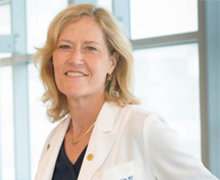 Lynne Warner-Stevenson, MD Lynne Warner-Stevenson, MD
Lynne Warner Stevenson graduated from Princeton University and Stanford Medical School, and completed medicine and cardiology training at UCLA. On the UCLA faculty, she helped to start the cardiac transplant program in 1984 and formed the Ahmanson-UCLA Cardiomyopathy Center, one of the first heart failure management programs. In 1993 she moved to become Director of Cardiomyopathy and Heart Failure at Brigham and Women’s Hospital, where she expanded referrals for transplantation and alternative strategies for advanced heart disease. Her physiologic research began with the clinical assessment and hemodynamic profiles for tailored therapy to take the congestion out of heart failure, currently developing protocols for ambulatory hemodynamic monitoring to decrease heart failure disease progression. She has played leadership roles in NIH trials of heart failure strategies and is one of the founders of the Intermacs Registry for Mechanical Circulatory Support, including over 22,000 patients. Dr. Stevenson has been an author on over 250 original publications and 30 national guideline documents and has served as Senior Associate Editor for the launch of Circulation Heart Failure. Her mentoring record includes more than 40 fellows who are current faculty in heart failure programs and two national consortia of junior investigators. As Director of Cardiomyopathy and the Advanced Heart Disease training program, Dr. Stevenson describes her vision as personalization of care for cardiomyopathy through integration of molecular and clinical profiling, attention to patient-reported outcomes, and triage and incorporation of patient goals into shared decision-making for advanced therapies, including palliative care.
Sessions: Translating Advances In HFrEF To Non-obstructive HCM-rEF

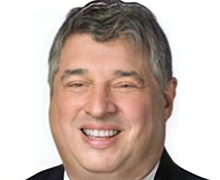 Marc Semigran, MD Marc Semigran, MD
Marc Semigran, M.D. has served as Chief Development Officer for Edgewise Therapeutics since 2022. Dr. Semigran brings considerable clinical development and translational medicine experience to Edgewise, having most recently served as Chief Medical Officer (CMO) at Renovacor through its acquisition by Rocket Pharmaceuticals, Inc. and previously served as CMO and Senior Vice President of medical science at MyoKardia through its acquisition by Bristol Myers Squibb in 2020 for $13.1 billion. During his tenure at MyoKardia, Dr. Semigran built and expanded his research and development team in order to execute successful translational and development programs including the advancement of mavacamten for patients with obstructive hypertrophic cardiomyopathy. Dr. Semigran oversaw the execution of Phase 1 and 2 studies, the design of registrational studies, interactions with global regulatory authorities, and also participated in the filing of the mavacamten New Drug Application following the acquisition of MyoKardia. In April 2022, the U.S. Food and Drug Administration approved Camzyos (mavacamten) for the treatment of adults with obstructive hypertrophic cardiomyopathy. Prior to entering the biotechnology industry, Dr. Semigran led the Massachusetts General Hospital Heart Failure and Cardiac Transplant Program as Section Head and Medical Director. In addition, he led the Harvard Regional Clinical Center of the National Heart, Lung, and Blood Institute (NHLBI) Heart Failure Network and was a Principal Investigator of a multicenter heart failure trial sponsored by the NHLBI. Dr. Semigran was a member of the internal medicine and cardiology faculty of Massachusetts General Hospital for more than 30 years and was an associate professor at Harvard Medical School. Dr. Semigran earned A.B., A.M., and M.D. degrees from Harvard University. He completed his internal medicine residency, cardiology, and heart failure fellowship training at Massachusetts General Hospital.
Sessions: Emerging pharmacologic therapies for HCM

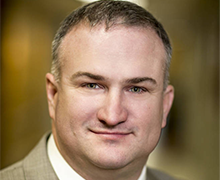 Matt Martinez, MD Matt Martinez, MD
Dr. Matthew Martinez is director of Atlantic Health System Sports Cardiology at Morristown Medical Center and a nationally recognized expert in Hypertrophic Cardiomyopathy (HCM). He specializes in identifying and treating athletes who have underlying heart issues such as arrhythmia or HCM, a hereditary medical condition where the walls of the heart become excessively thick, obstructing blood flow from leaving the heart. Dr. Martinez sees patients at Morristown Medical Center’s Chanin T. Mast Center for the Treatment of Hypertrophic Cardiomyopathy, a center dedicated exclusively to the diagnosis and treatment of HCM patients, a first-in-kind, multidisciplinary HCM program in New Jersey.
Board-certified and fellowship-trained in cardiovascular disease at the Mayo Clinic School of Medicine, Dr. Martinez serves as a cardiology consultant for professional sports including acting as the League cardiologist for Major League Soccer and team cardiologist for the New York Jets. He also maintains a thriving practice evaluating structural heart disease in both symptomatic and asymptomatic athletes using cardiac imaging, including echocardiography, stress testing, cardiac CT and cardiac MRI.
Sessions: Panel discussion on practical implementation of CMI

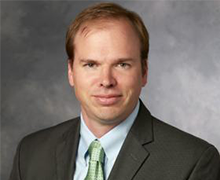 Matt Wheeler, MD Matt Wheeler, MD
Matthew Wheeler, MD is a physician scientist with interests in cardiomyopathies, rare and undiagnosed diseases, therapeutics and genomics. He’s a physician with interest and experience treating patients with hypertrophic cardiomyopathy, neuromuscular disease associated cardiomyopathies including adults with Duchenne and Becker muscular dystrophies, myotonic dystrophy, limb girdle muscular dystrophies, inherited dilated cardiomyopathies, advanced heart failure, mechanical circulatory support/LVADs, heart and multiorgan transplant, and competitive athletes with cardiac disease. He is Director of the Stanford Center for Undiagnosed Diseases, a clinical site of the Undiagnosed Diseases Network.. He has extensive translational science efforts, as site PI for ongoing clinical trials for hypertrophic cardiomyopathy and dilated cardiomyopathy and for cardiomyopathy consortia including NONCOMPACT, PPCM and the Precision Medicine Study/DCM Consortium. He is a Co-PI of the GREGoR Stanford Site, a research center of the GREGoR Consortium, and Co-PI of the NIH-funded Bioinformatics Center of the Molecular Transducers of Physical Activity Consortium. Our laboratory efforts focus on advancing diagnostic and therapeutic approaches in ultrarare diseases, with a focus on RNA-based diagnostics and therapeutics. He pursues projects and collaborations at the intersection of striated muscle genetics, genomics, therapeutics and clinical investigation.
Sessions: Emerging pharmacologic therapies for HCM

 Melissa Burrows, MD Melissa Burrows, MD
Melissa Burroughs is a noninvasive cardiologist at Wellstar Health System With a clinical emphasis on heart failure and inherited cardiomyopathies, Melissa also has expertise in global health, health inequality and environmental health. She currently serves on the board of directors of the Association of Black Cardiologists and the board of Duke University Cooperative Cardiovascular Society. Melissa is an active member of the American Heart Association, serving on the Scientific Sessions Programming Committee. She is an advocate for environmental justice for communities of color and is on the Board of Scientific Counselors for the Environmental Protection Agency. Melissa has conducted clinical research in the United States, Puerto Rico, Peru and Brazil and has co-authored 23 scientific publications. She is an associate editor at the American Heart Journal.
Melissa has a passion for mentorship. She has mentored college students, medical students, medical residents and cardiology fellows in clinical research and clinical medicine. She also is committed to promoting innovation in health care, and has served as a medical advisor to Lantheus, Aeon Global Health Clinical Laboratory and Simple Health Kit.
Melissa was born in St. Louis, MO and raised in Atlanta, GA. She graduated summa cum laude with a Bachelor of Science in Anthropology and Human Biology from Emory University. Melissa graduated cum laude from Harvard Medical School. She trained in internal medicine at the University of California, San Francisco and completed cardiovascular medicine training at Duke University where she also received a Master of Science in Global Health.
Sessions: HCM in under-represented populations; Women and Diverse Ancestral Populations

 Michael Ayers, MD Michael Ayers, MD
Michael Ayers, MD, is a sports cardiologist caring for hypertrophic cardiomyopathy patients, a genetic condition causing thickening of the heart muscle. While hypertrophic cardiomyopathy is one of the most common conditions diagnosed in competitive athletes, Ayers treats any cardiac symptoms or concerns, inherited cardiac conditions, or incidental cardiac findings in a broad spectrum of athletes, ranging from recreational runners and cyclists to professional athletes. Trained in advanced lipidology with a clinical focus on preventive cardiology, he also manages patients with a strong family history of premature heart attacks, cholesterol or lipid disorders, or high individual risk for cardiac events.
Ayers has advanced imaging expertise, with board certifications in advanced echocardiography, cardiac computed tomography (CT), and nuclear cardiology. He utilizes these modalities in the care of all of his patients, but they are particularly useful in caring for patients with advanced valvular or structural heart disease. He is also interested in managing cancer patients who are receiving potentially cardio-toxic chemotherapies, applying primary prevention and advanced imaging training to protect their hearts during their cancer treatments.
Sessions: Panel Discussions: I've found the intermediate biomarker of HCM disease progression!

 Michael Emery, MD Michael Emery, MD
Michael Emery, MD, MS, FACC, is Co-director of the Sports Cardiology Center in the Section of Clinical Cardiology, Tomsich Family Department of Cardiovascular Medicine, Sydell and Arnold Miller Family Heart, Vascular & Thoracic Institute. Dr. Emery sees patients at main campus.
Specialists in Cleveland Clinic’s Sports Cardiology Center work with thousands of athletes and highly active individuals each year who are at risk for, have been diagnosed with, or are recovering from cardiovascular disease to help them continue safely playing their sport. Dr. Emery has extensive experience in managing cardiovascular health in these individuals. In 2015 he founded the Center for Cardiovascular Care in Athletics, the first designated sports cardiology center in the Midwest, and in 2019 he established the Hypertrophic Cardiomyopathy Program, both at Indiana University Health in Indianapolis.
Dr. Emery has been the physician coordinator for cardiology testing and screening at the National Football League (NFL) Scouting Combine and a consultant to the National Basketball Players Association Retired Players Cardiovascular Screening Program since 2015. He has interpreted more than 1,000 athlete-specific electrocardiograms a year and has supervised and interpreted more than 300 athlete-specific cardiopulmonary exercise tests since 2016.
Sessions: Progressive thoughts on exercise in HCM

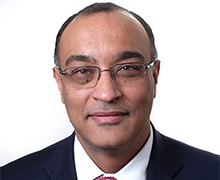 Milind Desai, MD Milind Desai, MD
Milind Desai, MD MBA, is the Director of Clinical Operations of the Robert and Suzanne Tomsich Department of Cardiovascular Medicine at the Sydell and Arnold Miller Family Heart, Vascular & Thoracic Institute at Cleveland Clinic. He is a Professor of Medicine at the Cleveland Clinic Lerner College of Medicine of Case Western Reserve University. He holds the Haslam Family Endowed Chair in Cardiovascular Medicine. He has dual appointments in the Departments of Cardiovascular Medicine (Section of Cardiovascular Imaging) and Radiology.
Dr. Desai is the Director of Center for Hypertrophic Cardiomyopathy, the Medical Director of the Center for Aortic Diseases, the Medical Director for Center for Radiation Heart Disease and an integral part of the Center for Valvular heart disease. He is an expert in multimodality cardiovascular imaging, having achieved the highest level of proficiency in all imaging modalities, including cardiac MRI, cardiac CT, echocardiography and nuclear cardiology. In addition, he serves on the multiple Heart, Vascular & Thoracic Institute councils, including Executive Council, Operations Council and Research Council. In addition, he serves on the Cleveland Clinic Research Compliance Committee.
Sessions: Oral Abstracts
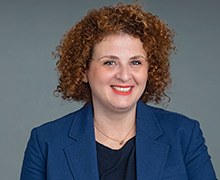 Milla Arabdjian, PhD Milla Arabdjian, PhD
Milla Arabadjian, PhD is Assistant Professor in the Department of Foundations of Medicine at NYU. Her research is focused on examining multi-level factors that contribute to health disparities among underrepresented populations with cardiovascular conditions, including hypertrophic cardiomyopathy, hypertension, and cardiovascular disease. These include disparities in diagnosis, treatment, genetic testing utilization, and psychosocial stress. In addition to quantitative observational and intervention research, she has methodological expertise in mixed-methods and qualitative research.
She has been the recipient of several honors, including as a finalist for the Heart Failure Society of America Nurse Investigator Award (2020), the Ellen D. Baer and Jacqueline Fawcett NYU Meyers Scholarships (2019), was a 2018 NINR Summer Genetics Institute Scholar.
Sessions: HCM in under-represented populations; Women and Diverse Ancestral Populations

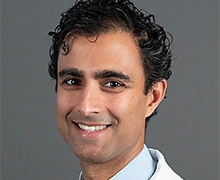 Neal Lakdawala, MD Neal Lakdawala, MD
Dr. Neal K. Lakdawala is a cardiovascular medicine specialist at Brigham and Women’s Hospital (BWH). He is also an instructor in medicine at Harvard Medical School (HMS).
Dr. Lakdawala received his medical degree from The University of Texas HSCSA. He completed a residency and chief residency in internal medicine at Columbia-Presbyterian Medical Center, a clinical and research fellowship in cardiovascular disease at BWH and a master’s degree in epidemiology at the Harvard School of Public Health. Dr. Lakdawala is board certified in internal medicine, cardiovascular disease and advanced heart failure and transplant cardiology.
His clinical expertise includes cardiomyopathy, cardiac sarcoidosis, congestive heart failure, cardiovascular genetics and heart transplantation. Dr. Lakdawala’s research and peer-reviewed publications investigate early phenotypes in genetic cardiomyopathy to identify physiology-based therapeutics for heart failure. He has received research funding from the National Institutes of Health’s Heart Failure Network.
Sessions: Translating Advances In HFrEF To Non-obstructive HCM-rEF

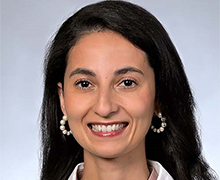 Nosheen Reza, MD Nosheen Reza, MD
Dr. Nosheen Reza is a cardiologist and translational researcher at the University of Pennsylvania focusing on advanced heart failure and transplant cardiology and cardiovascular genetics and phenomics.
She obtained her medical degree from the University of Virginia School of Medicine in 2012 and completed her internal medicine residency training at the Massachusetts General Hospital in 2015. She then completed her Cardiovascular Disease fellowship at the University of Pennsylvania in 2018. At Penn, Dr. Reza pursued additional scholarship in genomic medicine as an NIH T32-funded postdoctoral fellow and in healthcare quality as a Penn Benjamin & Mary Siddons Measey Fellow in Quality Improvement and Patient Safety. She completed her final year of clinical training at Penn in Advanced Heart Failure and Transplant Cardiology and joined the faculty at the University of Pennsylvania in July 2020. As an Assistant Professor of Medicine, she cares for patients in the Penn Center for Inherited Cardiovascular Disease and in the Section of Heart Failure, Transplantation, and Mechanical Support. Dr. Reza is also an Assistant Program Director of the Cardiovascular Disease Fellowship and the Director of the Penn Women in Cardiology program.
Sessions: Translating Advances In HFrEF To Non-obstructive HCM-rEF 

Ozlem Bilen, MD
Ozlem Bilen, MD, serves as Assistant Professor in the Department of Medicine, Division of Cardiology. Dr. Bilen leads clinical operations at Emory Clinic Cardiology at Emory University Hospital. She believes in team spirit in providing patient-centered care. Dr. Bilen is part of the Hypertrophic Cardiomyopathy Center and leads several research projects.
Dr. Bilen is actively involved in cardiovascular education. She works closely with the Cardiology Fellowship Program and Internal Medicine Residency Program at Emory University School of Medicine by educating medical students, residents and fellows.
Dr. Bilen received her medical degree from Hacettepe University School of Medicine in Ankara, Turkey. She completed her residency training at Baylor College of Medicine in Houston, TX, and her cardiology fellowship training at Emory University School of Medicine. She received several awards during her training including the Gold Humanism Honor Society Award as a reflection of her dedication to professionalism and excellence in patient care.
Sessions: Oral Abstracts 
 Rachel Lampert Rachel Lampert
Rachel Lampert, MD, is a sports cardiologist and an electrophysiologist (arrhythmia specialist) who has led groundbreaking studies on athletes with cardiovascular conditions. From elite college athletes to people who enjoy being active, Dr. Lampert works with patients to diagnose and assess cardiovascular risk and help them play the sports they love in a safe manner.
Dr. Lampert is the Robert W. Berliner Professor of Internal Medicine (Cardiology) at Yale School of Medicine and director of the Sports Cardiology Program at Yale Medicine. She specializes in treating athletes of all ages, including children, with arrhythmias (irregular heartbeat) and other kinds of heart conditions that could put them at risk for sudden cardiac death. She works to develop an effective diagnosis, treatment, and management strategy for each athlete and provides recommendations on whether and how they can safely participate in competitive sports.
Dr. Lampert’s pioneering research includes studies that have changed the national guidelines for athletes with implanted defibrillators. Previously, it was thought that athletes with defibrillators should not play sports; but those guidelines were based on expert opinion and not on hard data. So, Dr. Lampert decided to start collecting data. She studied more than 400 athletes with implanted defibrillators who decided to continue participating in sports despite the guidelines. She followed those athletes closely for four years, and no adverse medical events were reported during that time. As a result of her research, in 2015 the American Heart Association eligibility guidelines were changed to say that sports may be considered for athletes with defibrillators.
Sessions: Progressive thoughts on exercise in HCM

 Richard Bach, MD Richard Bach, MD
Richard Bach, MD current research focuses on examining the phenotypic (anatomic, physiologic, and clinical) heterogeneity among patients with hypertrophic cardiomyopathy (HCM) and their family members, including genotype-phenotype relationships that may account for this heterogeneity, novel diagnostic methods to diagnose at risk individuals before clinically manifest disease, and on the effect of therapeutic interventions on coronary and myocardial physiology in patients with severe obstructive HCM. Research is also directed at management and outcomes of patients with coronary artery disease (CAD) and acute coronary syndromes.
Sessions: Defining quality HCM care in 2023; SRT and more

 Sara Saberi, MD Sara Saberi, MD
Sara Saberi, M.D., M.S. is an Assistant Clinical Professor in the Division of Cardiovascular Medicine and a Co-Director of the Inherited Cardiomyopathy Program at University of Michigan. She received her bachelor's degree from Northwestern University in Evanston, IL and her medical degree from Wayne State University in Detroit, MI. She obtained her residency training in Internal Medicine and fellowship training in Cardiovascular Medicine at University of Michigan. She joined the faculty at Michigan in 2010. Dr. Saberi’s clinical work is focused on providing comprehensive care to patients with genetic cardiomyopathies and their families. Her research work focuses on clinical research aimed at understanding environmental factors that impact disease onset and progression in hypertrophic cardiomyopathy. She is also involved in clinical trials of new treatments to prevent or delay onset and progression of the disease. One of her areas of focus is determining the impact of exercise training on clinical outcomes, disease features, and quality of life in patients with hypertrophic cardiomyopathy and establishing evidence-based guidelines to inform recommendations for athletes with cardiomyopathies.
Sessions: After the Lede - Ancillary findings from CMI trials.


Scott Solomon, MD
Dr. Scott D. Solomon is The Edward D. Frohlich Distinguished Chair, a professor of medicine at Harvard Medical School, Director of Noninvasive Cardiology and Senior Physician at Brigham and Women’s Hospital. He directs the Cardiac Imaging Core Laboratory and the Clinical Trials Endpoints Center at Brigham and Women’s Hospital. He received his A.B. from Williams College and his M.D. from Harvard Medical School. Dr. Solomon’s research interests have focused on changes in ventricular structure and function following myocardial injury, modifiers of risk and influences of outcome in patients following myocardial infarction and with chronic heart failure, cardiovascular safety of non-cardiovascular therapies, factors that influence the transition from hypertension to heart failure and heart failure with preserved ejection fraction. He has pioneered the use of cardiac imaging in cardiovascular drug and device development and use of imaging in clinical trials. He has directed the Harvard Medical School Cardiovascular Clerkship and the Echocardiography training program at Brigham and Women’s Hospital. He has authored more than 400 peer-reviewed articles, reviews and editorials, two textbooks of cardiac imaging and the Echocardiograph/Imaging sections for the 10th edition of Braunwald’s Heart Disease and 19th edition of Harrison’s Principles of Internal Medicine. He is listed by Thomson-Reuters as one of the most highly cited scientists in the past 10 years. He is a Cardiology Section Editor at UpToDate and International Associate Editor at the European Heart Journal.
Sessions: Panel Discussion: Emerging pharmacologic therapies for HCM 
 Sharlene Day, MD Sharlene Day, MD
Sharlene M. Day, MD earned her B.S from the Massachusetts
Institute of Technology in 1991 and her MD from New York University School of
Medicine in 1995. She completed her internal medicine residency and
cardiovascular medicine fellowship at the University of Michigan, followed by a
postdoctoral research fellowship in cardiovascular biology and physiology.
Shortly after joining the faculty at the University of Michigan, she
established the Program for Inherited Cardiomyopathies and Arrhythmias, where
she served as the Director for 12 years. Dr.
Day joined the Penn faculty in July 2019 as Associate Professor of Medicine and
Genetics and Director of Translational Research for the Division of
Cardiovascular Medicine and the Cardiovascular Institute. She sees patients
with genetic heart conditions in the Penn Center for Inherited Cardiac Disease.
Her research program primarily focuses on
hypertrophic cardiomyopathy (HCM), and integrates basic, translational and
clinical science. She has published over 130 manuscripts and lectures
nationally and internationally. Dr. Day is past chair of the NIH Translational
Development and Clinical Studies Study Section, a member of the American Heart
Association and American College of Cardiology National Committee for
Establishing Treatment Guidelines for Patients with Hypertrophic
Cardiomyopathy, past-Chair and current Board of Director member of the Sarnoff
Foundation Scientific Committee, an elected member of the American Society of
Clinical Investigation, and Associate Editor for The European Heart Journal and JAMA
Cardiology.
Sessions: Panel Discussion: Emerging pharmacologic therapies for HCM

 Sharon Cresci, MD Sharon Cresci, MD
Dr. Sharon Cresci is an Associate Professor of Medicine in the Departments of Medicine and Genetics, with tenure, at Washington University School of Medicine in St Louis. She is the Associate Director of the Washington University/Barnes hospital Hypertrophic Cardiomyopathy Center of Excellence and the Director of the Adult Hypertrophic Cardiomyopathy Clinical Database and Tissue Repository. She is the past Chair of the American Heart Association Genomic and Precision Medicine Council’s Professional/Public Education & Publications Committee. She is a Fellow of the American Heart Association, the American College of Cardiology, and the American Society of Echocardiography. Her research focuses on identifying genetic and clinical factors responsible for variable response to pharmacologic treatment and identifying factors responsible for racial disparities in outcomes in patients with cardiovascular disease with a special focus on hypertrophic cardiomyopathy. The ultimate goal of Dr. Cresci’s research is on promoting and advancing precision medicine approaches.
Sessions: Panel Discussions: I've found the intermediate biomarker of HCM disease progression!


Sheila Hegde, MD
Dr. Sheila Hegde is a cardiovascular medicine specialist at Brigham and Women’s Hospital (BWH) with a special interest in cardiovascular imaging and population health. She is an instructor in medicine at Harvard Medical School.
She received her medical degree from University of Kansas Medical School. She completed her internal medicine residency at Barnes Jewish Hospital/Washington University School of Medicine and fellowship in cardiovascular medicine at University of Wisconsin. She then completed an additional post-doctoral NIH-sponsored research fellowship at Brigham and Women’s Hospital and Masters in Public Health at Harvard T.H. Chan School of Public Health.
Dr. Hegde is board certified in internal medicine, cardiovascular disease, echocardiography, and nuclear cardiology. Her clinical and research interests include echocardiography, population health, cardiovascular imaging, women’s health, and physical activity.
Sessions: Panel Discussions: I've found the intermediate biomarker of HCM disease progression!

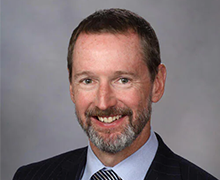 Steve Ommen, MD Steve Ommen, MD
Steve R. Ommen, M.D., is a board-certified cardiologist with special interest in hypertrophic cardiomyopathy (HCM) and valvular heart disease. His undergraduate degree is in biomedical engineering from Northwestern University in Evanston, Illinois. He graduated from Mayo Medical School (now Mayo Clinic School of Medicine) and obtained specialty training in internal medicine and cardiology at Mayo Clinic in Rochester, Minnesota.
Dr. Ommen is the Medical Director of the Mayo Hypertrophic Cardiomyopathy Clinic, the largest and longest continuous single center specializing in HCM and has been actively engaged in clinical research for patients with HCM for over two decades. He also has led national practice guidelines for HCM. He has been honored with awards for clinical care, individual excellence, and team excellence.
Sessions: Panel discussion on practical implementation of CMI 
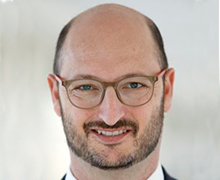 Steve Heitner, MD Steve Heitner, MD
Stephen Heitner is a Senior Medical Director at Cytokinetics. Previously he worked as a Cardiologist at Oregon Health & Science University (OHSU). He received his medical degree from University of the Witwatersrand, Johannesburg South Africa followed by residency in Internal medicine from Albert Einstein Medical Center, Philadelphia and fellowship in cardiology from Cooper University Hospital, Camden, New Jersey. He has a special interest in amyloidosis, cardiac amyloidosis, cardio-oncology and hypertrophic cardiomyopathy. Dr. Heitner specializes in caring for patients with uncommon and complex cardiac conditions. Dr. Heitner is also an expert in cardiac imaging, and has implemented the latest developments in cardiac ultrasound technology in to the echocardiography laboratory at OHSU. Through the use of contrast echocardiography, 3D echocardiography, and even newer promising technologies, Dr. Heitner is helping improve the detection of disease, as well as guide non-surgical repair of structural cardiac problems (e.g. transcutaneous valve replacements, septal defect repairs).
Sessions: Panel Discussion: Emerging pharmacologic therapies for HCM

|